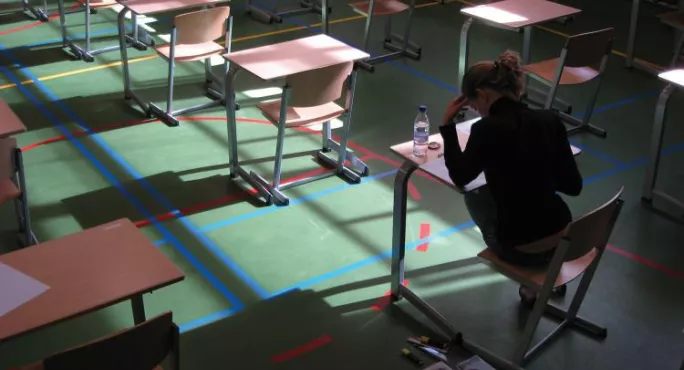Colleges must ensure young people don’t “hit a brick wall” when pursuing English and maths GCSEs. So said education secretary Justine Greening at the Association of Colleges’ (AoC) conference last week, going on to highlight that functional skills have a role to play alongside GCSEs.
For many of us in the FE sector, her comment felt like a lifeline - as we have repeatedly called for the government to put less emphasis on GCSEs alone when there are alternative qualifications that are much better suited to certain learning styles. Learners find their way to a good level 2 standard (and beyond) in different ways, by following different routes and over different periods of time. We need to review these different routes and achievements and value them equally.
Of course, GCSEs are a valuable asset. They do carry a currency that is recognised in education and employment. This is a well-rehearsed argument. However, many employers continue to report that critical numeracy and literacy skills are lacking in employees. This is no surprise and many of us will recall that there was once an aspiration that GCSE wouldn’t be achieved “without mastery of functional elements”, yet we so often hear functional skills referred to as “stepping stones” to GCSE.
So are GCSEs doing the trick? They certainly aren’t for everyone. And for those learners who do not excel during these exams, forcing them to endure retakes is not necessarily the right way to develop their English and maths skills. Retakes can be demoralising and leave a sustained impact on the confidence of students in their own abilities, which can go on to haunt them not just in further education but also in the workplace and in life. Why are we limiting the opportunities for students to demonstrate their progress in maths and English by narrowing and undervaluing other assessment options?
The role of functional skills
So what are the alternatives? Well, as Ms Greening pointed out, functional skills qualifications have a role to play alongside GCSEs and the plans to revise functional skills qualifications are indeed welcome. Learners should be able to develop English and maths skills in a useful and relevant way, whereby what they learn is applicable to the workplace and meets the needs of employers. Surely this is better than forcing learners to repeatedly retake GCSEs - an approach that is both ineffective and inefficient.
In her speech, Ms Greening called for support in delivering education reforms from across the “technical education family”. It needs to be realised that the technical education family itself is in need of support. Success in functional skills can transform the lives of learners and the workplace, but this needs to be properly resourced.
While their budgets are being slashed, those teaching functional skills in the FE sector need support. They work with learners who may never have done any sort of vocational learning before and who haven’t had success with maths and English. Many of those who come to functional skills aren’t immediately ready to apply what they are being taught. Yet this is even more reason to have adequately resourced teachers who can provide skilled delivery and extra support and guidance to those who need it.
It is time for the government to reassess. Learners need to be allowed to gain the qualification that works for them. We need to help them by making the right options available, each with a very clear purpose and value. Similarly, we need to help employers to understand and recognise each option.
Ultimately, with skills gaps still high, and in light of statistics showing that the number of resits among students aged 17 and above in English and maths has increased by a third on the previous year, it’s time for a rethink. Resits cost money, time and resources, all of which are surely better spent on developing qualifications that can develop learners’ maths and English abilities and help them make valuable contributions to the workplace and to society.
I hope Justine Greening’s comments at the AoC were just a starting point for a new approach. After all, this government has promised a society that works for everyone. Surely that should also include those who don’t suit GCSEs?
Hilary Gwilliam is head of pre-employment at City & Guilds
Want to keep up with the latest education news and opinion? Follow TES FE News on Twitter, like us on Facebook and follow us on LinkedIn

